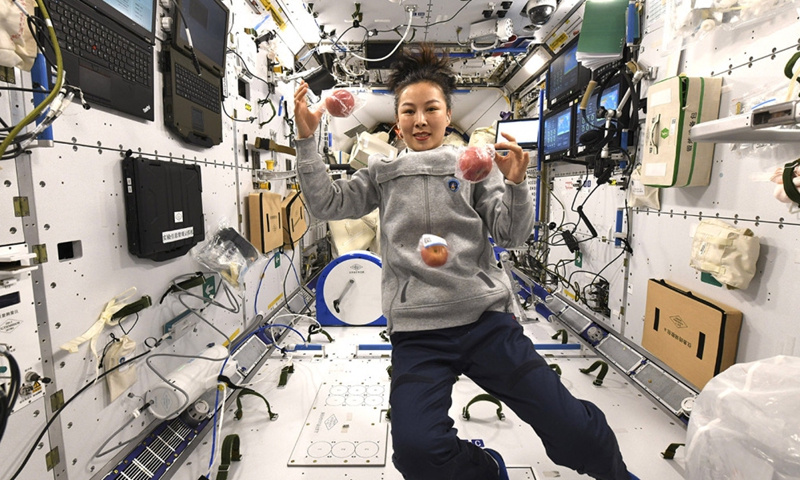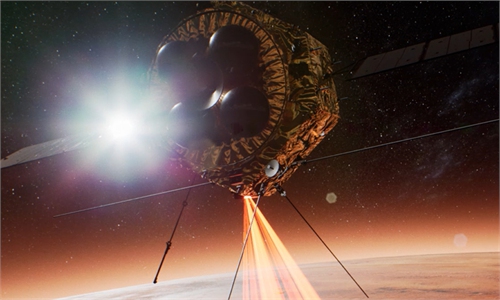SCI-TECH / AIR & SPACE
General public may have chance to visit space station in coming decade: China's first astronaut

Photo provided by the Astronaut Center of China shows Chinese female taikonaut Wang Yaping in the space station core module Tianhe.(Photo; Xinhua)
With the development of space tours during the 14th Five-Year Plan period, the general public in China may have a chance to visit the country's space station in the next decade, revealed China's first astronaut Yang Liwei, a month before the Shenzhou-13 crew wrap up their epic six-month stay in their space home.
Since going into space last October, the Shenzhou-13 crew have been in good condition. They will return to Earth in mid-April, completing the very first stage of the space station - key technological verification stage, noted Yang, director of China Manned Space Engineering Office and member of the National Committee of the Chinese People's Political Consultative Conference (CPPCC), amid the ongoing two sessions.
After Shenzhou-13's return, the Shenzhou-14 and -15 manned missions and two cargo fleets will be rolled out this year, as well as the Wentian and Mengtian experimental modules, forming a T-shaped structure with a cabin room of more than 110 cubic meters. According to the plan, China will complete construction of its Tiangong space station by the end of this year, drawing a satisfactory conclusion to the 30th anniversary of China's manned aerospace history.
Another highlight of China's space plans is that the Shenzhou-14 and -15 spacecraft will dock at the space station simultaneously for the first time, forming a six-module combination that allows six taikonauts to shift duty in orbit.
"Our crew members will basically stay in orbit for six months and shift duty every half a year after the space station enters a routine operational phase, which is in accordance with the common practices at the International Space Station. According to the needs of experiments, the duration of stay may even be longer," Yang was quoted as saying in an interview with the China National Radio.
Longer-term stays also mean greater challenges for the taikonauts, for which the ground research teams have been well prepared, Yang added. For example, the food and other supplies prepared for the Shenzhou-14 crew will be different from that for members of the Shenzhou-13, and the selection will cater to the crew's preferences. Fresh fruits that can be stored longer will also be brought into space.
When asked if the general public without professional training can take a tour around the space station, Yang said it is no problem realizing such a goal within 10 years. "It is not a technical issue, as long as there are needs."
China's astronaut team are also welcoming in new faces, enriching the age structure and professions of the team. "We need astronauts of different functions - pilots, engineers, payload specialists, etc. The training time will also vary according to their functions. For example, the pilot may need about three and a half years of training, while payload specialists may need a shorter time, two and a half years," Yang explained.
Speaking of international cooperation, Yang said that with the overdue of the International Space Station, China's Tiangong will certainly take on a more important role in the future. "As always, we hold an open attitude toward international cooperation and we welcome more countries to join us in conducting research in space," he said.
Global Times

